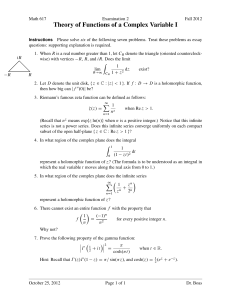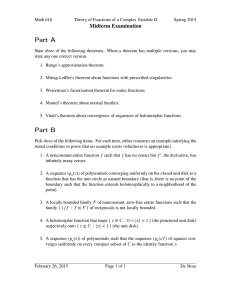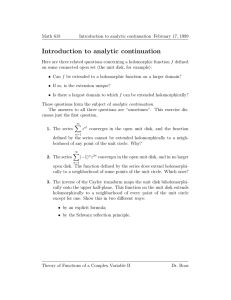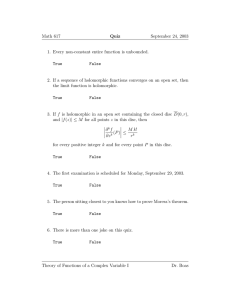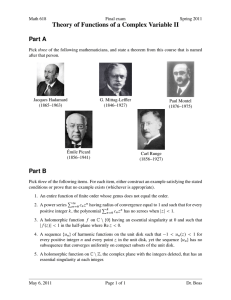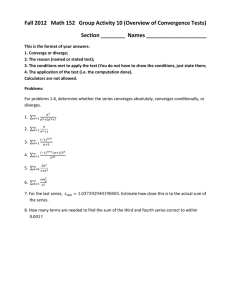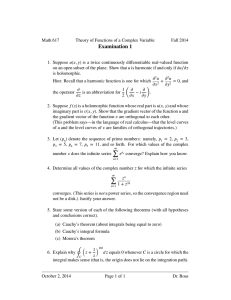Math 618 Assignment 9 Due April 5, 2011
advertisement
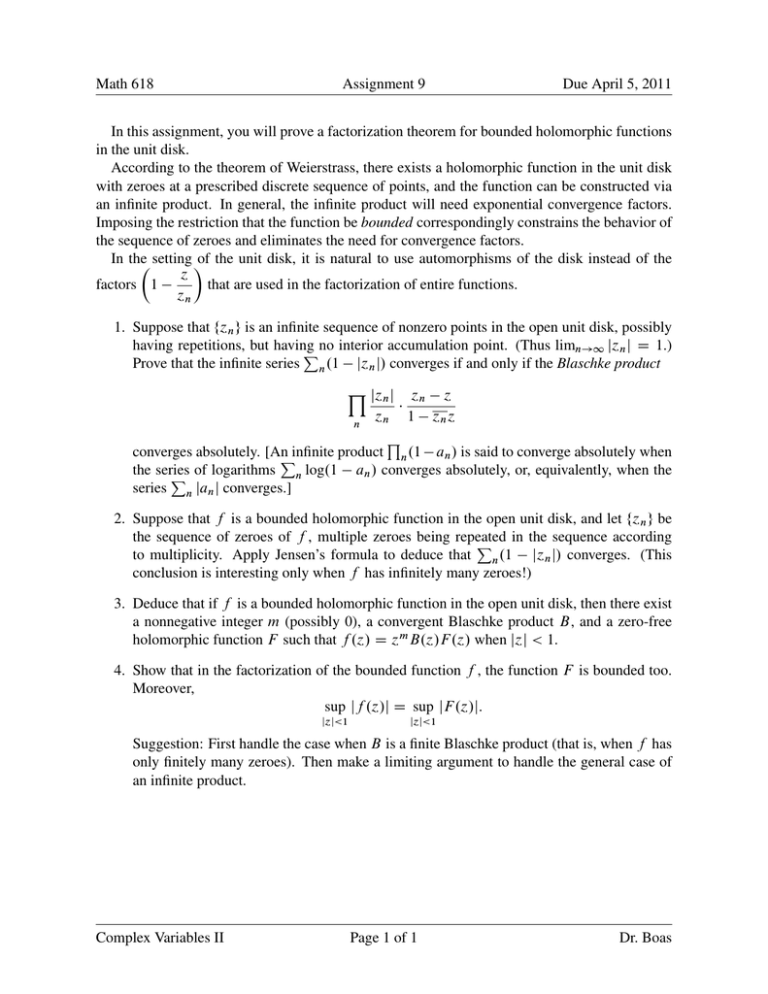
Math 618 Assignment 9 Due April 5, 2011 In this assignment, you will prove a factorization theorem for bounded holomorphic functions in the unit disk. According to the theorem of Weierstrass, there exists a holomorphic function in the unit disk with zeroes at a prescribed discrete sequence of points, and the function can be constructed via an infinite product. In general, the infinite product will need exponential convergence factors. Imposing the restriction that the function be bounded correspondingly constrains the behavior of the sequence of zeroes and eliminates the need for convergence factors. In the setting of the unit disk, it is natural to use automorphisms of the disk instead of the ´ that are used in the factorization of entire functions. factors 1 ´n 1. Suppose that f´n g is an infinite sequence of nonzero points in the open unit disk, possibly having repetitions, but having Pno interior accumulation point. (Thus limn!1 j´n j D 1.) Prove that the infinite series n .1 j´n j/ converges if and only if the Blaschke product Y j´n j n ´n ´n ´ 1 ´n ´ Q converges absolutely. [An infinite product an / is said to converge absolutely when n .1 P the series of logarithms log.1 a / converges absolutely, or, equivalently, when the n n P series n jan j converges.] 2. Suppose that f is a bounded holomorphic function in the open unit disk, and let f´n g be the sequence of zeroes of f , multiple zeroes being repeated P in the sequence according to multiplicity. Apply Jensen’s formula to deduce that n .1 j´n j/ converges. (This conclusion is interesting only when f has infinitely many zeroes!) 3. Deduce that if f is a bounded holomorphic function in the open unit disk, then there exist a nonnegative integer m (possibly 0), a convergent Blaschke product B, and a zero-free holomorphic function F such that f .´/ D ´m B.´/F .´/ when j´j < 1. 4. Show that in the factorization of the bounded function f , the function F is bounded too. Moreover, sup jf .´/j D sup jF .´/j: j´j<1 j´j<1 Suggestion: First handle the case when B is a finite Blaschke product (that is, when f has only finitely many zeroes). Then make a limiting argument to handle the general case of an infinite product. Complex Variables II Page 1 of 1 Dr. Boas
